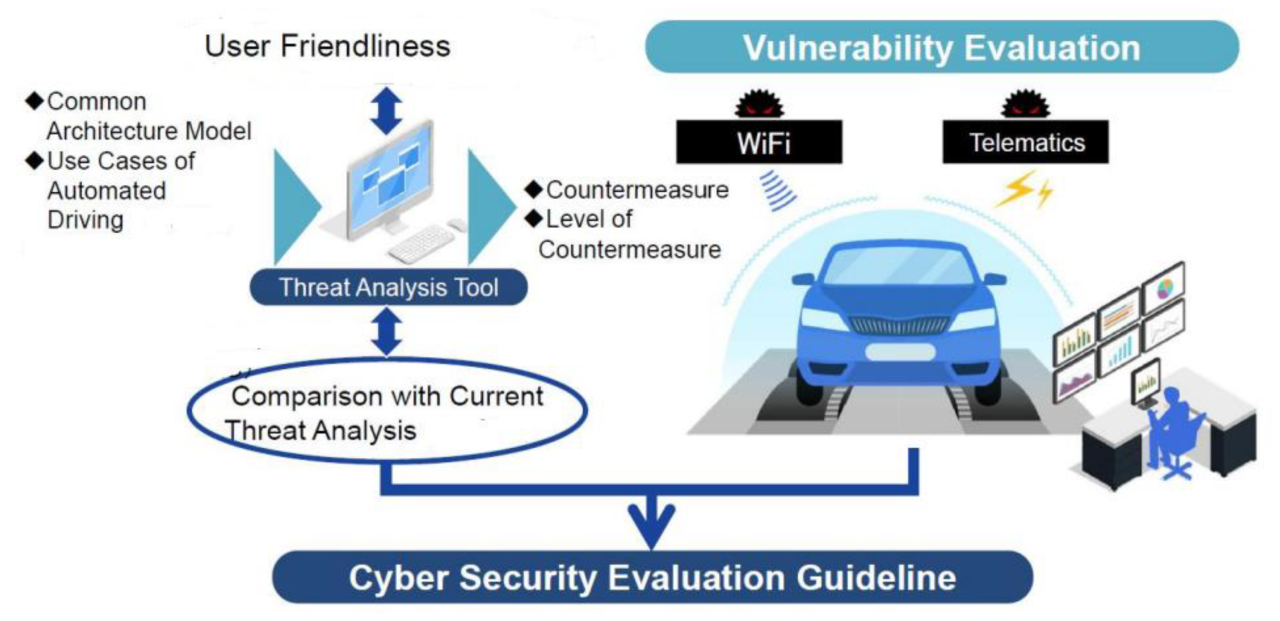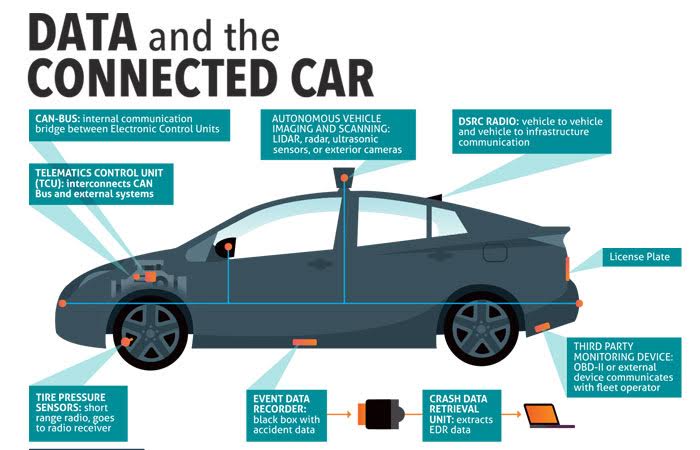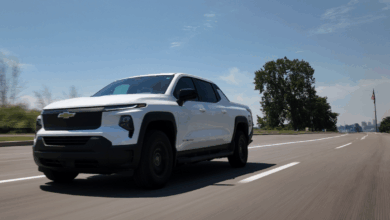Your Car’s Data Collection Privacy Risk
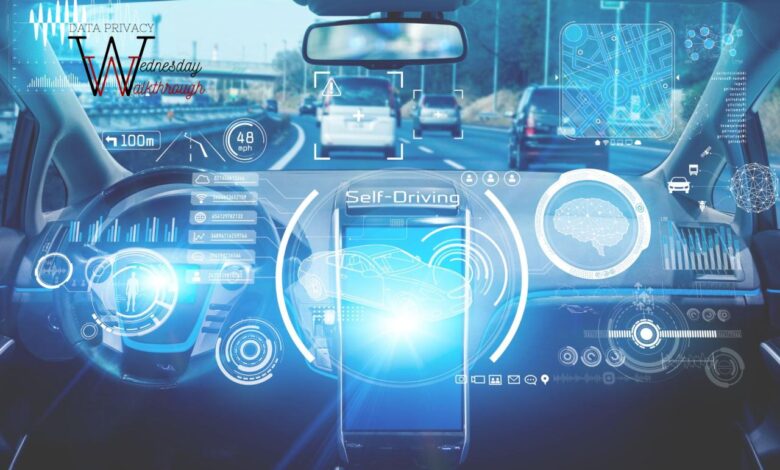
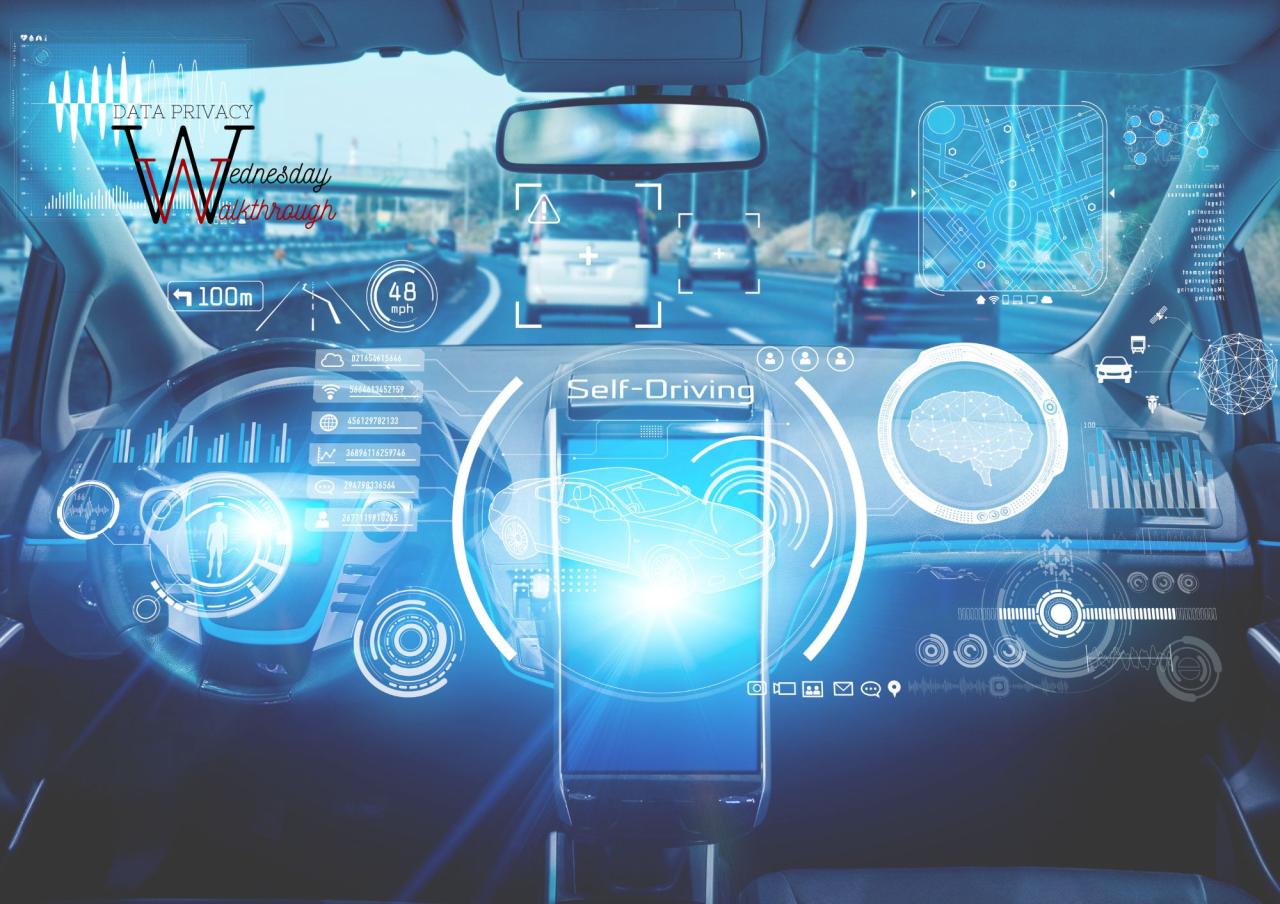
The modern automobile has undergone a profound transformation. It’s no longer just a mode of transportation; it’s a powerful, connected computer on wheels. While features like built-in navigation, voice assistants, and over-the-air updates offer incredible convenience, they come with a hidden and often misunderstood cost: your personal privacy. The very technology that makes your car smarter is also making it one of the most sophisticated data collection devices you’ve ever owned. This in-depth investigation will pull back the curtain on the extensive data your vehicle gathers, reveal who has access to this information and how it’s being used, outline the tangible risks to your security and finances, and provide a concrete action plan to help you reclaim a measure of your digital privacy on the road.
A. The Connected Car: A Data Collection Powerhouse
Today’s vehicles are equipped with an array of sensors, cameras, microphones, and constant internet connectivity. This infrastructure, designed to enable advanced features, also functions as a pervasive surveillance system.
A. The Triad of Data Collection: Telematics, Cameras, and Biometrics
Modern cars collect three primary categories of data, often without the owner’s full comprehension.
-
Telematics and Driving Behavior Data: This is the most extensively collected information. It includes your vehicle’s speed, acceleration, braking force, steering angle, seatbelt use, and precise GPS location history. This data paints a detailed picture of not just where you go, but how you drive.
-
Infotainment and Personal Device Data: When you connect your smartphone via Bluetooth or USB, your car can import and store your contact lists, call logs, text messages, email metadata, and even your entire media library. Voice commands are recorded, transmitted to cloud servers for processing, and often stored for “quality improvement.”
-
Biometric and Interior Sensor Data: Advanced driver-monitoring systems use inward-facing cameras and infrared sensors to track your head position, eyelid movement (to detect drowsiness), and even your heart rate. Newer models with in-cabin radar can sense the number of passengers and their movements.
B. The Always-On Connection: Cellular and Wi-Fi Modems
The key enabler of this data harvest is the permanent internet connection. Most new cars come with a built-in cellular modem, similar to a smartphone, that creates a constant data link between your vehicle and the manufacturer’s servers. This allows for the silent, continuous transmission of collected data, often in real-time. Even if you use a personal Wi-Fi hotspot, the vehicle’s systems are still designed to phone home through whatever connection is available.
B. The Hidden Ecosystem: Who Wants Your Driving Data?
The data harvested from your vehicle does not simply reside in a secure vault at the car company. It enters a complex and lucrative data economy with multiple stakeholders.
A. The Automakers: The Primary Data Controllers
Manufacturers are the first to collect your data. Their stated reasons are to improve vehicle safety, performance, and customer experience. However, the unstated economic incentive is powerful. This data is immensely valuable for:
-
Research and Development: Understanding real-world driving habits helps engineers design future models.
-
Targeted Marketing: Knowing your driving patterns allows manufacturers to market specific services, features, or even new vehicle models to you at the optimal time.
-
New Revenue Streams: The sale of aggregated and anonymized data to third parties is a burgeoning business model, transforming automakers from manufacturing companies into data companies.
B. The Insurance Industry: The Risk Profilers
This is one of the most direct and impactful uses of your driving data. Through “Usage-Based Insurance” (UBI) programs like Progressive’s Snapshot or Allstate’s Drivewise, you voluntarily share your telematics data in exchange for a potential discount. However, the risk is significant. Hard braking, rapid acceleration, and late-night driving can be used to increase your premiums, not just lower them. The line between voluntary programs and data acquired without explicit consent from your vehicle’s built-in systems is becoming increasingly blurred.
C. Third-Party Data Brokers and Advertisers
A vast, shadowy industry exists to buy, aggregate, and resell personal data. Information from your car about the places you frequently visit (e.g., gyms, political rallies, specific healthcare providers) can be combined with other data points to build a shockingly complete profile of your lifestyle, habits, and beliefs. This profile is then sold to advertisers, political campaigns, and other entities.
D. Law Enforcement and Legal Proceedings
The data in your car can be used against you. Police can request data from automakers, sometimes without a warrant, to reconstruct a suspect’s movements or actions. Following a crash, the vehicle’s “black box” (Event Data Recorder or EDR) can provide data on speed, braking, and seatbelt use in the seconds before an impact. This data is routinely used in civil and criminal litigation to assign fault.
C. The Tangible Consequences: From Annoyance to Harm
The collection of this data is not a victimless crime of convenience. It leads to real-world consequences that can affect your wallet, your security, and your rights.
A. Personalized Price Discrimination and Manipulation
With intimate knowledge of your driving habits and lifestyle, companies can engage in dynamic and personalized pricing.
-
Insurance Premiums: As mentioned, your driving data can directly lead to higher insurance costs.
-
Service and Repair: If your vehicle reports that you frequently engage in “aggressive driving,” a dealer might use this data to deny a warranty claim on suspension or transmission components.
-
Targeted Advertising: You might receive ads for a new car just as your lease is about to end, or for tire shops when your sensors detect tread wear, creating a sense of manufactured urgency.
B. Stalking and Domestic Abuse
The connectivity features designed for convenience can be weaponized by malicious actors. A former partner with access to the vehicle’s companion app can often track the car’s real-time location, remotely unlock or lock doors, or even start/disable the engine. This turns a tool of independence into a tool of control and terror for victims of stalking and domestic abuse.
C. Digital Theft and Cybersecurity Breaches
A connected car is a hackable car. Cybersecurity researchers have repeatedly demonstrated the ability to remotely take control of a vehicle’s critical systems, including its brakes and steering. While large-scale attacks are rare, the risk is real. Furthermore, the personal data stored in the infotainment system (contacts, home address from navigation) is a goldmine for thieves if the vehicle’s digital security is compromised.
D. Erosion of Legal Protections and the Fourth Amendment
The legal system is struggling to keep pace with this technology. The question of whether your driving data is protected under the Fourth Amendment, which guards against unreasonable searches and seizures, is not fully settled. Law enforcement agencies are increasingly using data from vehicles to conduct surveillance without traditional warrants, creating a new frontier in the battle for digital privacy rights.
D. A Practical Guide to Reclaiming Your Automotive Privacy
While you cannot completely opt-out of data collection in a modern vehicle, you can take proactive steps to significantly reduce your digital footprint and mitigate the risks.
A. Conduct a “Data Hygiene” Audit of Your Vehicle
Start by understanding what your car is capable of. This is a multi-step process.
-
Read the Privacy Policy: Locate the privacy policy for your vehicle’s manufacturer. It is often a dense, complex document, but search for keywords like “data sharing,” “third parties,” and “opt-out.” This will tell you what they admit to collecting.
-
Review Connected Services Settings: Dive deep into your vehicle’s infotainment system settings. Look for menus related to “Data Sharing,” “Privacy,” “Connected Services,” or “Telematics.” Disable any optional data-sharing features you find.
-
Manage Your Smartphone Connection: Be very cautious about what data you allow the car to access from your phone. When connecting, deny permissions for it to sync your contacts, messages, or call logs if possible. Consider using a guest or rental profile if your car supports it.
B. Strategically Limit Data-Sharing Features
-
Avoid Built-In Navigation for Sensitive Trips: For trips to medical facilities, political events, or other private locations, use your smartphone’s navigation with a privacy-focused map service (like Apple Maps with “Significant Locations” disabled) instead of the car’s built-in system.
-
Disable Voice Profile Storage: If your car has a voice assistant, find the setting that allows you to delete stored voice recordings and disable the saving of your voice profile.
-
Be Wary of “Free” Trials: When a free trial of a connected service (like Wi-Fi) ends, consider whether you need to pay for it. These services are often primary conduits for data collection.
C. Understand Your Legal Rights (Especially in the U.S.)
Knowledge is power. Familiarize yourself with the rights you do have.
-
The Right to Access and Delete: Under some state laws, like the California Consumer Privacy Act (CCPA), you may have the right to request a copy of the data a company has collected about you and to request its deletion.
-
Opt-Out of Sale: The CCPA and similar laws also often provide the right to opt-out of the “sale” of your personal information. Look for a “Do Not Sell My Personal Information” link on the automaker’s website.
D. Make Informed Future Purchasing Decisions
Your most powerful tool is your wallet. When shopping for your next vehicle, make privacy a key factor in your decision.
-
Research Manufacturer Reputations: Some automakers have a more transparent and less aggressive data collection stance than others. A quick online search can reveal which companies are more privacy-conscious.
-
Ask the Dealer Direct Questions: Ask the salesperson: “What is this car’s data collection policy?” and “How can I disable data sharing?” Their answers (or lack thereof) will be very telling.
Conclusion: Driving Into a Privacy-Conscious Future
The convenience of the connected car has a price, and that price is measured in the intimate details of our daily lives. The extensive data collection happening within our vehicles is not a hypothetical future threat; it is a present-day reality with serious implications for our financial security, personal safety, and civil liberties. While we cannot return to the age of the purely mechanical automobile, we can refuse to be passive passengers in the erosion of our privacy. By becoming informed about the risks, taking proactive steps to limit data sharing, and demanding greater transparency and control from manufacturers, we can steer towards a future where technological innovation and personal privacy can coexist on the road. The choice of who controls the data about your life is ultimately yours to make.
Tags: car data collection, vehicle privacy, connected car risks, telematics, data brokers, automotive cybersecurity, privacy protection, car hacking, data privacy laws, smart car safety
Category: Automotive & Privacy

